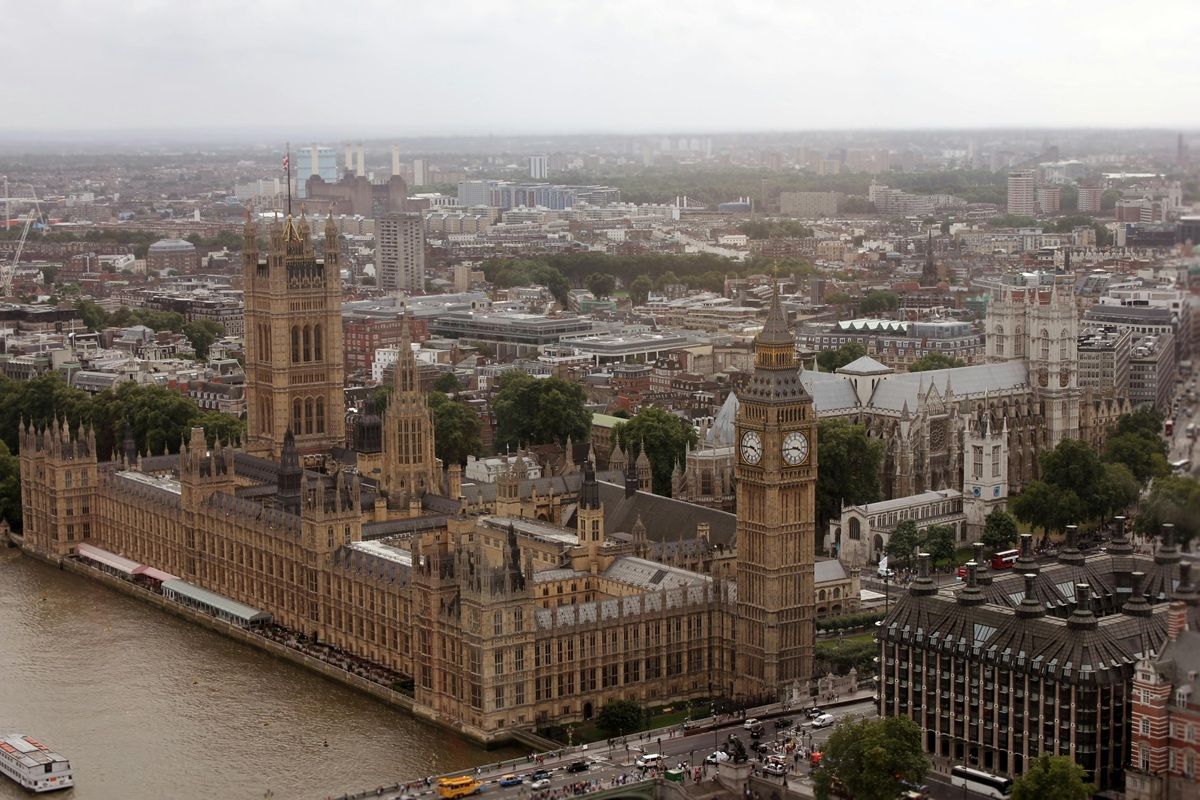UK, 3 in 10 Britons in Economic Difficulty – Purchasing Power Down 41% Since 2004

UK residents’ purchasing power has plummeted over the last 20 years. According to a new poll by Tickmill, an international online trading broker, purchasing power has decreased by 41% since 2004. An idled £100,000 stored away in a bank account, uninvested, today would be worth only £59,021 — a reality that is a testament to inflation and the failure of wealth to keep pace with the cost of living.
Table of Contents
ToggleComparative Economic Insights: UK vs EU
Represented in the infographic Purchasing Power and Cost of Living: UK vs EU, Tickmill‘s analysis reveals diverging trends between the UK and the European Union. In fact, the ones in the UK have fallen slightly by 0.4% to £41,573 and in the European Union by 0.1% to £40,874.
Had the UK remained part of the European Union, it would have ranked as the fifth most expensive, behind just Ireland, Luxembourg, Denmark and the Netherlands. This highlights the high cost of living in the UK and its effects on residents’ financial health.
Who is Most Affected?
There are several groups in the UK who have been particularly affected by the cost of living crisis:
- Women: 30% say they are struggling financially versus 25% of men.
- Age Group 35–49: 39% of individuals in this age group experience high levels of difficulty.
- Low-Income Households: Among those earning less than £15,000 a year, three in five are struggling.
- Single Parents: 50% of single-parent families struggle to make ends meet.
Regional Disparities in Purchasing Power and Cost of Living
The impact of financial hardship is not uniform across the UK:
- Thirty-four percent of Northern Ireland‘s population is affected, the highest.
- Wales is next with 31%, while England and Scotland are at 28% and 22%, respectively.
- Inside England, the North East is the worst affected area, with 40% of residents suffering. Even in London, often viewed as a bastion of affluence, 1 in 4 adults struggle because of the high cost of living.
How Britons are Coping
In response to these challenges, many Britons have changed the way they spend and save:
- Cutting Back on Non-Essentials: More than half (53%) have reduced or postponed spending on small items, including dining out, entertainment, subscription services and clothing.
- Lower Energy Consumption: 52% are consuming less energy at home to save money.
- Reduced Grocery Spending: An estimated 48% have cut back on what they are spending on food.
- Postponing Major Purchases: 41% have put off large purchases like holidays, cars and weddings.
- Working Longer Hours: About 26% are working overtime or holding down extra jobs to get by.
Financial Adjustments and the Savings Gap
In addition to slashing costs, many Britons have dipped into their savings to pay for everyday expenses. A quarter of adults have dipped into savings or investments, and 44% have cut back or eliminated saving altogether — a 4% increase from 2023.
Not investing is another major reason behind decreasing purchasing power. It is estimated that 13 million people in the UK have £430 billion worth of cash deposits between them — sectors of which have refrained from investing. The reasons are telling:
- Lack of Knowledge: 74% of people report that they have difficulty comparing similar investment products correctly.
- Fear of Loss: 43% do not want to invest because of fear of loss.
The Importance of Financial Literacy and Investment
That hesitance to invest illustrates a common ignorance about personal finances. Most people in the UK are losing out on a vital opportunity to protect or expand their purchasing power over time. Investments, when done right, can act as a hedge to inflation and a wealth accumulating tool.
Bringing this gap up to par could be essential through educational initiatives and additional access to simplified investment platforms. Having more Britons take charge of their own finances and investing for a stable future could be made possible by providing knowledge and tools to invest with confidence.
Conclusion
In the UK a range of factors including increasing costs, static wages and low financial literacy have led to a deterioration in the purchasing power of consumers. Although people are trying to adjust — by cutting spending or working longer hours — the bigger answer is to tackle systemic problems.
Improving financial literacy, encouraging investment, and enacting policies to suppress the skyrocketing cost of living and plunging purchasing power. As the data shows (especially as compounded each year in our reflections on 2020), proactive financial planning is no longer a luxury — it is a necessity in our economic climate.
Published by Carol Jones
My aim is to offer unique, useful, high-quality articles that our readers will love. Whether it is the latest trends, fashion, lifestyle, beauty , technology I offer it all View more posts
Recent Post
Ultimate Hair Transplant Tourist Cities







